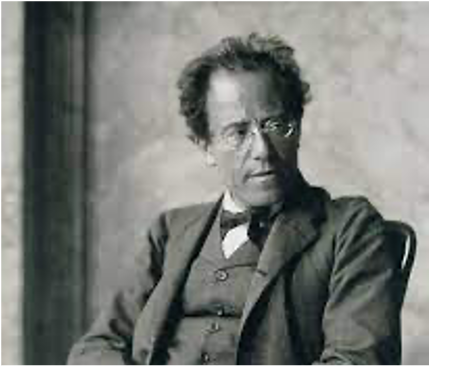


Austrian Jewish composer and conductor, who became famous for his emotional and subtly orchestrated symphonies. Although his music was largely ignored for 50 years after his death and he was primarily considered an outstanding conductor (and not a composer), Mahler was later regarded as an important forerunner of 20th-century techniques of composition.
Born in Bohemia (now part of the Czech Republic) and into an Austrian Jewish family, he was the second from 14 children. He began singing and composing at the age of 4, and 4 years after he discovered a piano in his grandmother's attic, he was already considered a musical wonder kid. He then joined the Vienna Conservatory, started his career by conducting in provincial opera houses and in his 30s became the musical director of the Vienna Court Opera, a job for which he had to convert from Judaism to Catholicism. Later on, at the beginning of the 20th century, he became director of New York's Metropolitan Opera and the New York Philharmonic.
Mahler’s work ethic was characterised by perfectionism, something that made him unpopular among the musicians of the orchestras he directed, while he was known for his authoritarianism.
As a composer, he composed 10 symphonies of large scale and very emotional character, many times focused on death and life after death.
Being a Jew, born in Bohemia and living in Austria, Mahler never felt accepted. He had once said: " I am thrice homeless, as a native of Bohemia in Austria, as an Austrian among Germans, and as a Jew throughout the world. Everywhere an intruder, never welcomed".
Many of his works (over 100) have been used in cinema and television, the most famous example being the 4th movement of his Symphony 5 in Visconti's film "Death in Venice". Today, his symphonies are considered as very important, linking the romantic style of the 19th century with the modernism of the 20th.